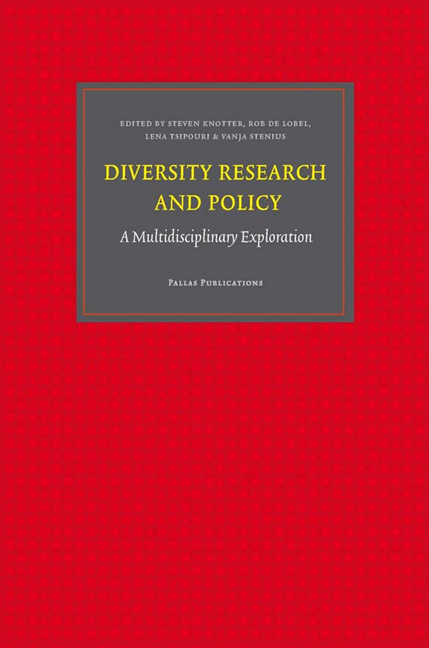Book contents
- Frontmatter
- Contents
- Acknowledgements
- 1 An Introduction
- 2 Diversity and Social Anthropology
- 3 Diversity and Sociology
- 4 Diversity and Criminology
- 5 Diversity and Ecology/Ecological Economics
- 6 Linguistic Diversity
- 7 Diversity and Architecture
- 8 Diversity and Urban Planning
- 9 Diversity and Economics
- 10 Diversity and Diversity Management in Business and Organisation Studies
- 11 Diversity and (Organisational) Psychology
- 12 Diversity and Law
- 13 Diversity and Public Policy
- 14 Conclusion
- About the Authors
- About the Reviewers
5 - Diversity and Ecology/Ecological Economics
Published online by Cambridge University Press: 15 January 2021
- Frontmatter
- Contents
- Acknowledgements
- 1 An Introduction
- 2 Diversity and Social Anthropology
- 3 Diversity and Sociology
- 4 Diversity and Criminology
- 5 Diversity and Ecology/Ecological Economics
- 6 Linguistic Diversity
- 7 Diversity and Architecture
- 8 Diversity and Urban Planning
- 9 Diversity and Economics
- 10 Diversity and Diversity Management in Business and Organisation Studies
- 11 Diversity and (Organisational) Psychology
- 12 Diversity and Law
- 13 Diversity and Public Policy
- 14 Conclusion
- About the Authors
- About the Reviewers
Summary
A Brief Description of the Discipline of Ecology
Our world is dependent on the services provided by our ecosystems such as energy, water, food and wood, not only for our daily consumption and production, but also for our long-term survival. This has led to an increasing transformation of the earth's surface into productive land, with a subsequent loss of species and the decay in biological variety. The mean species abundance – a proxy indicator for biodiversity – has shown a reduction of more than 30% in the past decades worldwide. The awareness is growing that the current development is entirely unsustainable and has to be converted into a balanced long-run development path. The recognition that biological diversity is of critical importance to the stability of the earth's ecosystem – as a key resource for sustainable functions of natural systems – offers a complementary perspective on the view that biodiversity provides a fundamental potential for human use, such as sustainable development, recreation, human health or scientific research.
Against this background, ecology proposes to study the complex patterns and interactions of living nature. It may formally be described as the scientific study of the “branch of biology dealing with the relations of organisms to one another and to their physical surroundings” (Oxford Dictionary). Ecological economics is a branch of science at the interface of ecology and economics (see Van den Bergh 1996, 2002). It aims to adopt a broad perspective on relevant causes and effects in time, space and parts of economic-environmental systems. It addresses in particular environmental and policy issues in relation to sustainable development. Ecological economics is thus a rather recent discipline that emerged largely in the 1980s as a scientific challenge to analyse the new scarcity due to the loss of environmental quality, natural resources and biodiversity. Ecological economics has since developed into a major branch of research on economic aspects of our ecology. Biodiversity has become an important component of ecological economics.
An important step in the analysis and valuation of biodiversity is the definition of the term ‘biodiversity’. This is certainly not an unambiguous concept. The United Nations Convention on Biological Diversity (CBD) defines biodiversity as ”…the variability among living organisms from all sources, including terrestrial, marine and the ecological complexes of which they are part…” (United Nations Environment Programme 1992, Article 2).
- Type
- Chapter
- Information
- Diversity Research and PolicyA Multidisciplinary Exploration, pp. 73 - 82Publisher: Amsterdam University PressPrint publication year: 2012



